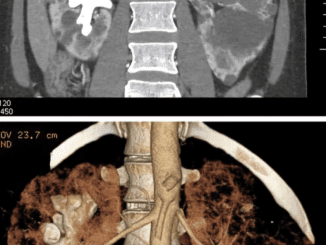Every Thanksgiving, millions of families across the United States gather to enjoy a festive meal, and for many, no holiday spread is complete without Stove Top Stuffing. This popular side dish, known for its convenience and savory flavor, has been a holiday staple for decades. However, recent revelations about two ingredients in Stove Top Stuffing have raised concerns about its safety, particularly regarding cancer risks. Shockingly, these ingredients are banned in several developed countries, including the UK, EU, and Japan. So, what exactly are these ingredients, and why is this seemingly harmless side dish creating such a stir?
The Two Ingredients Causing Concern: BHA and BHT

Stove Top Stuffing, introduced by General Foods in 1972 and still sold by Kraft Foods, contains two controversial ingredients: BHA (butylated hydroxyanisole) and BHT (butylated hydroxytoluene). These synthetic chemicals are used as preservatives to extend the shelf life of processed foods, and are also employed as flavor enhancers in many snack foods, cereals, meats, and even gum. While they’re legal in the United States, both BHA and BHT are banned in Europe and Japan, where food safety regulations are more stringent.
So, what makes these chemicals so problematic? According to experts, BHA and BHT are classified as “reasonably anticipated” carcinogens by the U.S. Department of Health and Human Services. This means there is evidence suggesting these substances can increase the risk of cancer in humans.
The Link Between BHA, BHT, and Cancer
Dr. Neha Pathak, MD, a member of the WebMD Medical Team, explains that numerous animal studies have shown that high doses of BHA and BHT can lead to tumor development in rats and hamsters. While research in humans is still ongoing, these studies have been significant enough to prompt regulatory bodies in the EU, UK, and Japan to ban the chemicals from food products.
“BHA is recognized as a carcinogen in the U.S.,” Dr. Pathak notes. “And while these chemicals are still allowed in many food products here, there’s growing evidence that they pose health risks, particularly in terms of cancer development.”
These chemicals are particularly concerning because they accumulate in the body over time. While consuming small amounts might not immediately cause harm, repeated exposure to processed foods containing BHA and BHT could pose long-term health risks.
Endocrine Disruption and Other Health Risks
Beyond the cancer concerns, BHA and BHT are also suspected of being endocrine disruptors. This means they can interfere with the body’s hormonal systems, which regulate various critical functions such as metabolism, growth, reproduction, and mood. Endocrine disruption can potentially affect fertility, early menstruation, and overall hormonal balance, though further research is still required to fully understand these long-term effects.

“Endocrine disruption is another area of concern,” Dr. Pathak adds. “These chemicals can interfere with how our hormones communicate with different parts of the body. We’re still working to understand exactly how these disruptions might affect fertility or developmental health.”
Additionally, some individuals may experience allergic reactions to BHA and BHT, leading to skin rashes, headaches, or hypersensitivity responses.
Why Is Stove Top Stuffing Still Popular Despite These Risks?
Despite the growing evidence about the risks associated with BHA and BHT, Stove Top Stuffing remains one of the most popular and widely consumed foods in America, especially during Thanksgiving. The convenience of the boxed stuffing mix, coupled with its savory flavor, makes it a go-to side dish in many households. According to Kraft Foods, over 60 million boxes of Stove Top Stuffing are sold each year, particularly around Thanksgiving.
However, as awareness about food additives grows, many people are beginning to question the safety of these ingredients. But should you immediately remove Stove Top Stuffing from your Thanksgiving table?
Should You Stop Eating Stove Top Stuffing?
While it’s tempting to completely avoid products like Stove Top Stuffing due to the presence of BHA and BHT, Dr. Pathak cautions against making drastic changes out of fear. She points out that 70% of the average American diet is composed of ultra-processed foods, which often contain similar preservatives and additives. So, while one box of Stove Top Stuffing may not cause significant harm, it’s important to be mindful of your overall diet.

“We can’t necessarily judge ourselves and be stressed out about everything we’re putting onto our plate,” Dr. Pathak says. “But it’s important to recognize that a large portion of our diets are ultra-processed. Are there a few things that we can start eliminating and taking out so that we are eating safer, healthier diets?”
Making Healthier Choices: Alternatives to Stove Top Stuffing
If you’re concerned about the risks posed by BHA and BHT but still crave the comforting taste of stuffing, there are alternatives available. Many brands offer stuffing mixes made with fewer artificial additives, and you can even make your own stuffing from scratch using fresh ingredients like bread, herbs, vegetables, and natural seasonings. This way, you can enjoy the traditional flavors of Thanksgiving without the worry of harmful chemicals.
Opting for a homemade version also allows you to control the ingredients and avoid ultra-processed foods altogether, which is a great step toward a healthier lifestyle.
Conclusion: Navigating the Complexities of Food Safety
Stove Top Stuffing may be a beloved Thanksgiving tradition for many, but it’s important to understand the potential health risks associated with its ingredients. BHA and BHT, though legal in the U.S., are banned in Europe and Japan due to their potential cancer-causing effects and their role as endocrine disruptors. While the immediate risks from eating one box of stuffing may be minimal, the larger issue lies in the prevalence of ultra-processed foods in the modern diet.
As Dr. Pathak suggests, the key is not to panic, but to be more mindful of the foods we consume and consider making healthier, more informed choices. By paying attention to food labels and opting for fresher, less processed options, you can reduce your exposure to harmful additives and enjoy a safer, healthier diet. This Thanksgiving, you can still savor the holiday traditions while also making choices that prioritize your health and well-being.


